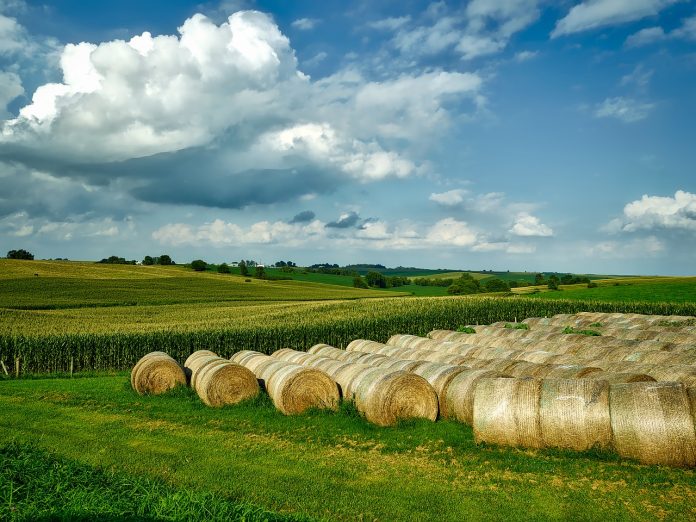By Ryan Conklin
Since joining Wright & Moore in August 2015, one of my priorities has been working with young, beginning, and small (YBS) farmers. Many of the folks I encounter in professional and social circles fit this mold and are using their 20s and 30s to begin farming or join existing family operations. For these YBS farmers, getting off the ground can be a steep climb and one that often presents unique legal challenges.
The most common line of questions YBS farmers ask me is about whether to form a business entity. Makes sense, right? Between starting a family, working an off-farm job, and spending your free time in the fields or barn, many YBS farmers start to wonder “is it time for me to make my business legitimate?” Well, in a classic attorney’s answer, I will tell you “it depends.” The needs of each client must be considered when answering this question, however, here are a few examples that could provide additional guidance.

1Direct marketing
Q. My wife and I are starting to market our own products at local markets and directly to customers, should we have a business?
A. Most likely, yes. Selling products directly to markets and consumers is considered a high-risk activity. If you make someone sick with your products, you’re liable no matter how careful you are. Take advantage of all the liability protection you can get (and buy plenty of liability insurance). Other high-risk activities include property rentals, trucking and raising large amounts of livestock.
2Working with family, friends
Q. My best friend and I have this great idea and want to start using it to make money. Should we put something formal in place?
A. Again, most likely the answer is “yes.” Business ventures among family members or friends are also high risk endeavors. If the business effort fails, what happens to the profits or losses? If one party wants to leave, can the other buy back his/her share? These issues, and others, can be addressed through forming a business, and can save lots of headaches down the road.
3Employees
Q. Business for my farm recently picked up, and I had to hire a few employees to help with the workload. Should we have a business entity?
A. Forming a business entity would be a great idea in this scenario. If you are not incorporated, and one of your employees causes an accident, you could be directly liable for the accident. Even if you are the only business owner, operating under a formal entity is a key form of liability protection (in addition to your liability insurance).
4Love and the farm
Q. I am going to get married next month and have some farm assets I want to protect from a potential divorce. Would a business entity help?
A. Possibly. This question is more difficult to answer. If you form a business and put your farm assets into that business, it could provide some short-term protection from divorce. However, the longer you are married, the more the line between marital asset and non-marital asset begins to blur. If this is a concern for you, the best route to protecting farm assets is a prenuptial agreement.
Sources: This week, we turn to guest author Ryan Conklin, an attorney with the firm of Wright & Moore, www.ohiofarmlaw.com, in Delaware, Ohio. He grew up on a dairy farm in southern Union County, Ohio, and works with farmers and landowners on a variety of issues.
(Farm and Dairy is featuring a series of “101” columns throughout the year to help young and beginning farmers master farm living. From finances to management to machinery repair and animal care, farmers do it all.)
More Farming 101 columns:
- Harvest prep: Check your yield monitors
- How to tag livestock properly
- 6 tips for decision making on a family farm
- 8 tips to prepare your farm for agritourism
- How to plan for farm emergencies
- 7 keys to success on the farm
- 7 tips for healthy fair animals
- 5 tips to ensure livestock health before the fair
- 6 tips to keep your livestock parasite free
- 6 tips for vaccinating your livestock
- 5 tips to prevent dairy cow foot problems
- 6 common foot problems found in dairy cows
- Recognize, prevent heat stress in dairy cattle
- How to monitor your dairy herd
- How to start your own dairy farm
- 5 tips for sun safety in the field
- Employing youth for the summer
- What to do if a hay fire occurs
- How to prevent hay fires
- How to extend the life of your fence
- 10 safety tips for installing electric fences
- How to chose the right fence for your farm
- How to create a fencing plan
- 7 steps for easy sprayer calibration
- Prepare for planting season, Part 2: Calibration
- Prepare for planting season, Part 1: The Basics
- 7 tips to improve security on your farm
- 5 tips to protect your farmland
- 3 measures to deal with severe farm debt
- How to buy time to catch up on farm debt
- 6 tips to manage income on the farm
- 5 tips to recognize and deal with farm stress
- How to prepare a livestock birthing kit
- 5 tips for marketing your farm
- How to develop farm mission, vision statements
- 5 tips for setting farm goals
- 2 types of livestock insurance policies
- 6 things you need to know about WFRP plans
- 3 basics of crop insurance
- How does liability insurance work on the farm?
- Why do I need farm insurance?
- How to understand and use Ohio’s CAUV
- How to utilize the Pa. Clean and Green Act
- 9 tips for filing farm taxes
- 8 reasons record keeping for taxes is essential
- 5 tips for post-harvest storage
- 7 tips for family meetings on the farm
- 4 tips for balancing your farm and family
- 4 tips for communicating on the family farm
- 4 tips for firing an employee
- 6 tips for keeping good farm help
- 4 tips for recruiting farm labor
- 5 general farm labor laws
- 4 tips for employing minors
- 4 tips for PTO safety
- 5 things young farmers should know about finances
- The farm balance sheet
- 5 items for your farm’s cash flow statement
- Personal and business records: Keep them separate
- What to include in your farm business plan
- How to approach a lender: Tips for getting a farm loan
- How to use microloans to get your farm started
- Saving for the future: 6 tips for young farmers
- How to create a farm safety kit
- 5 tips for child safety on the farm
- 4 tips for transporting livestock
- 5 ways to better understand tractor stability
- 6 farm equipment hacks










